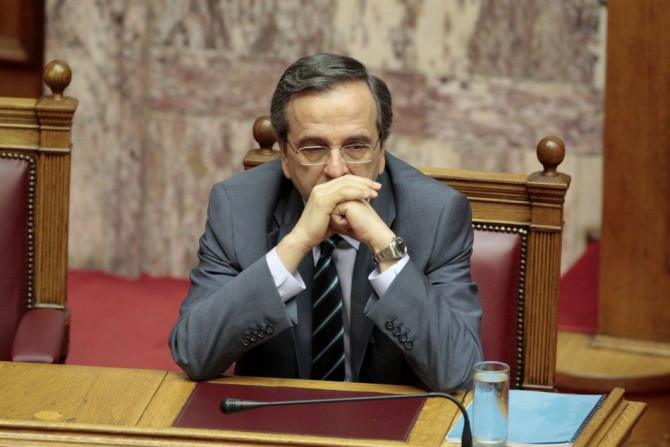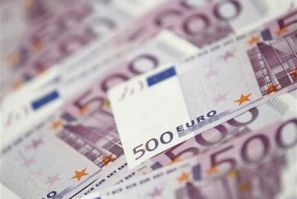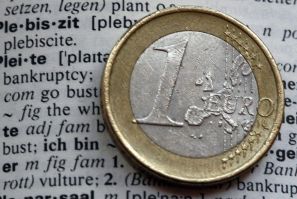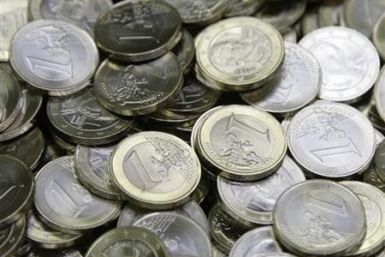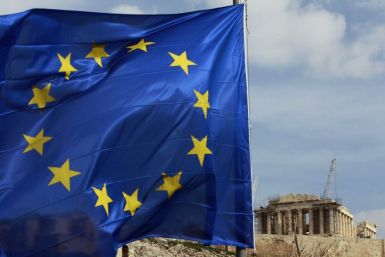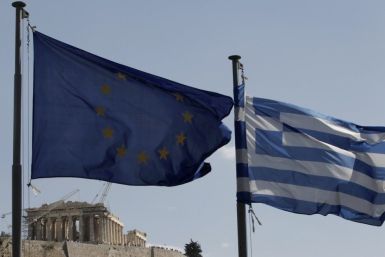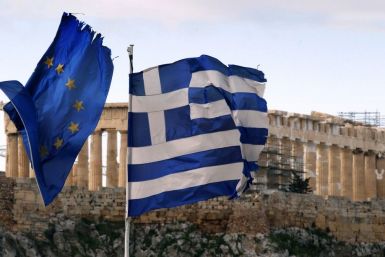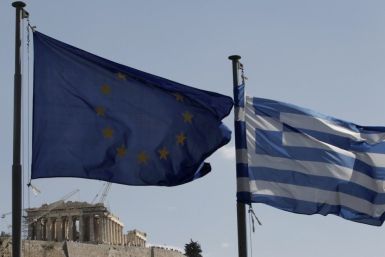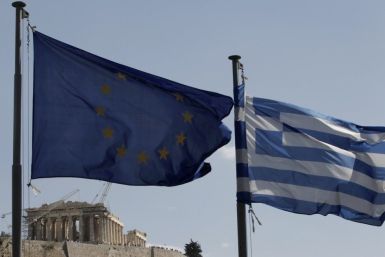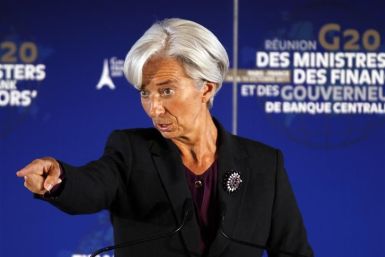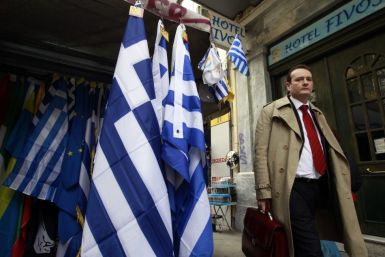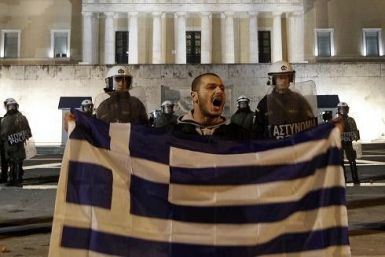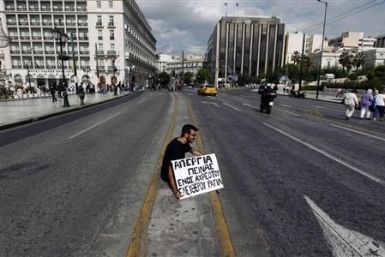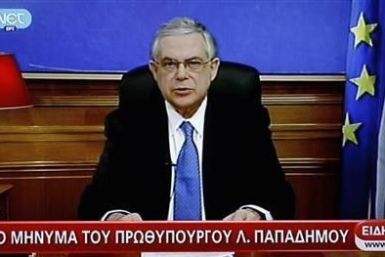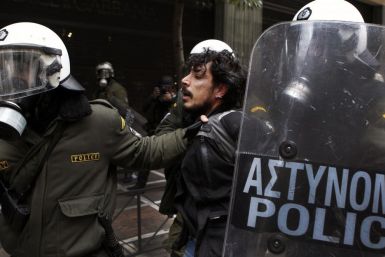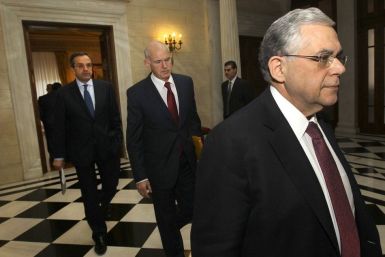Developments in the two weeks since the credit event confirmed that the world's first test of using credit default swaps as protection involving sovereign debt turned out fairly well. But broader concerns abound, such as the fragile Greek economy and what could be in store for fellow euro zone members Spain and Portugal.
Early bids at an auction to decide the payout due to Greek bondholders who are insured against default showed investors fear for the country's financial future even after a debt restructuring and aid packages.
Greece will have to slash a further 5.5 percent of GDP in government spending in 2013 and 2014 to meet agreed fiscal targets underpinning the second international bailout for Athens, a European Commission report said.
Asian shares fell Monday as investors paused to assess the effect of strong U.S. jobs data, which scaled back expectations for more easing ahead of this week's Federal Reserve meeting, while concerns over China's slowdown also weighed on sentiment.
The French president's hopeful comments came as Germany's finance minister warned against overreacting to the deal, saying Greece must use its sovereign debt lifeline wisely.
Greek officials say the deal eases their country's debt burden by €105 billion. Next up: Action by the European Union to determine if Athens will get emergency loans to help avert a default.
Greece moved closer on Thursday to concluding a bond swap deal with private creditors that it desperately needs to stave off a messy default and buy time to repair its exhausted economy.
The comments come as more private investors signed up to a crucial debt swap deal set to make or break the country's continued use of the Euro and its membership of the EU.
Greece has approved pension and health care cuts as part of the reforms agreed in return for the 130 billion euro ($171 billion) bailout deal approved by the Eurozone.
Standard & Poor's has announced that its rating on Greek sovereign debt has been downgraded to selective default, subsequent to agreement by banks to write off more than half of their Greece debt holdings.
Leading economies told Europe it must put up extra money to fight its debt crisis if it wants more help from the rest of the world, piling pressure on Germany to drop its opposition to a bigger European bailout fund.
Greece formally launched a bond swap offer to private holders of its bonds on Friday, setting in motion the largest-ever sovereign debt restructuring in the hope of getting its messy finances back on track.
Finance ministers and central bank chiefs from the Group of 20 countries will meet this weekend in Mexico City to tackle the euro zone's debt crisis and the prospect of replenishing the International Monetary Fund.
Greece's parliament endorsed a debt swap with private bondholders on Thursday that forms the core of its 130-billion-euro bailout, despite new protests against tough budget cuts demanded in return for the rescue deal.
The loan comes just in time for Greece, which has to repay a maturing loan by March 20 to avoid bankruptcy.
For some observers, Greece can seem like a small problem in a distant land, incapable of affecting U.S. investors. But in the financial crisis era, that is most certainly not the case.
Some European leaders have expressed optimism that the next round of rescue financing for debt-scarred Greece will be approved by Eurozone finance ministers at a crucial meeting in Brussels on Monday.
Black-masked protesters throwing petrol bombs created a wall of fire on Sunday outside Greece's parliament as lawmakers inside looked set defy public rage by endorsing a new austerity deal to secure an EU/IMF bailout and avoid national bankruptcy.
Greek lawmakers looked set to agree to a deeply unpopular bailout deal on Sunday to avert what Prime Minister Lucas Papademos warned would be economic chaos, and Germany demanded Greece dramatically change its ways to stay in the euro.
Investors flocked to the security of safe-haven assets Friday, like U.S. Treasuries and cash dollar holdings, ahead of what is expected to be a volatile weekend in Athens, already rocked by riots and tense government negotiations.
Greece's prime minister struck back at critics in a letter to his Cabinet Friday evening, delivering a rousing plea in which he asked Greek government officials to coalesce behind a new ambitious but achievable program of fiscal austerity; however, the letter acknowledged that would be difficult politically, difficult economically, and socially difficult.
Following days of exhausting political drama, high-level brinkmanship and stern rhetoric in both public and private statements, the red-eyed leaders of Europe's leading financial institutions reached a deal Thursday with Greece's governing coalition to impose further austerity measures on that country in exchange for a €130 billion bailout ($172.56 billion).


